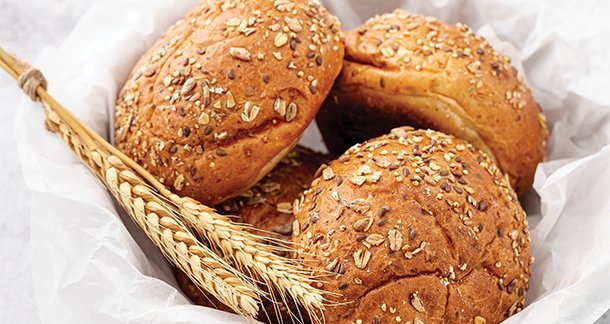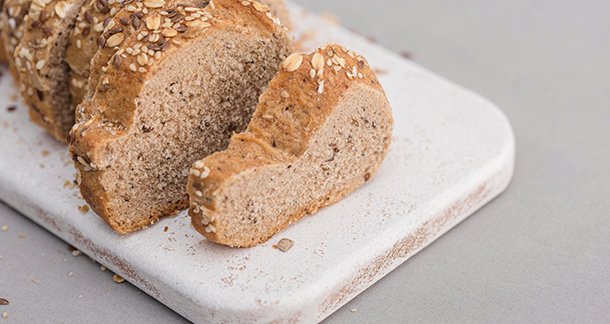Bakery products, once considered indulgent treats, are now a central part of the global daily diet. From breads and buns to muffins and biscuits, they are convenient, tasty, and satisfying. However, most conventional baked goods offer limited nutritional value particularly in terms of essential micro-nutrients. As consumer awareness around health and wellness grows, there is a pressing demand for baked products that do more than just please the palate. The concept of nutritionally enriched bakery products, especially those fortified with essential micro-nutrients, is gaining momentum in both research and industrial sectors.
Micro-nutrients: Small in Size, Big in Impact
Micro-nutrients, though required in small quantities, play a pivotal role in human health. Iron, zinc, calcium, folate, and vitamins like A, D, and B12 support immunity, bone health, cognitive development, and cellular functions. Unfortunately, many populations globally suffer from deficiencies in these nutrients, often unknowingly a condition referred to as “hidden hunger” . Bakery products, being widely consumed, present an ideal medium for delivering these nutrients at scale. However, the challenge lies in incorporating them effectively without negatively impacting the taste, appearance, or shelf life of the product.

Microencapsulation: Safeguarding Nutrients During Baking
One of the most promising technologies for micronutrient incorporation is microencapsulation. This involves coating micronutrients with protective materials such as lipids, gums, or proteins to prevent degradation during baking. Encapsulation shields nutrients from high temperatures, oxidation, and interactions with other ingredients that might reduce their efficacy. For example, microencapsulated iron does not impart a metallic taste or discoloration, ensuring both palatability and nutritional impact. Similarly, encapsulated vitamins like folic acid and vitamin D maintain their potency even after baking.
Natural Fortifiers: Clean-Label, Nutrient-Rich Additions
Simultaneously, the baking industry is seeing a shift towards the use of natural micro nutrient-rich ingredients. Instead of synthetic additives, many bakers are opting for powders derived from moringa leaves, beetroot, pumpkin, banana florets, and pea peels. These natural ingredients are rich in iron, calcium, potassium, and antioxidants, and they also offer additional fiber and phytonutrients. The inclusion of such clean-label ingredients caters to the growing demand for transparency, sustainability, and functional nutrition.

Mineral Chelates: Enhancing Bio-availability with Fewer Side Effects
To improve bioavailability – the degree to which nutrients are absorbed and utilized in the body mineral chelates and organic complexes are being introduced. Minerals such as iron and zinc, when delivered as chelates (bound with amino acids), are more stable and better absorbed compared to their inorganic counterparts. These forms also reduce the likelihood of sensory changes, such as bitterness or off-flavors, making them suitable for delicate bakery matrices.
Traditional Techniques: Sprouting and Fermentation with a Modern Twist
Traditional techniques like sprouting and fermentation are also being reintroduced with modern modifications. Sprouting grains such as wheat or ragi help reduce anti-nutritional compounds like phytates and oxalates, which can inhibit mineral absorption. Similarly, sourdough fermentation lowers the dough’s pH, increasing the solubility of minerals like iron and calcium. These methods also enhance flavor, texture, and shelf stability, creating a win-win for both nutrition and sensory quality.

Smart Baking Systems: Preserving Nutrients with Technology
Technological advancements are further enhancing nutrient retention during baking. Smart baking systems, including vacuum baking, infrared heating, and controlled-atmosphere ovens, allow for better control of temperature and humidity. These systems are particularly useful for preserving heat-sensitive nutrients such as B-complex vitamins and vitamin C. Artificial Intelligence (AI) and sensors are now being integrated into ovens to monitor nutrient retention and ensure consistent quality across batches.
Policy Support: Fortification as a Public Health Strategy
From a regulatory standpoint, fortification is increasingly being promoted as a public health measure. In India, the Food Safety and Standards Authority of India (FSSAI) have established fortification guidelines for wheat flour with iron, folic acid, and vitamin B12 under its Food Fortification Resource Centre (FFRC). Globally, over 80 countries have adopted mandatory or voluntary wheat flour fortification programs, reflecting the growing recognition of its role in reducing micro-nutrient deficiencies at scale.
Challenges and the Road Ahead
Despite these positive developments, certain challenges persist. These include ensuring uniform nutrient distribution, cost-effectiveness, and consumer acceptance. Yet, with sustained research, industry collaboration, and regulatory support, fortified baked goods are becoming increasingly feasible and desirable.

Conclusion
In conclusion, enriching the crumb literally and figuratively is not just a scientific endeavor but a nutritional necessity. With the integration of smart technology, natural ingredients, and advanced formulation techniques, bakery products can become powerful vehicles of micronutrient delivery. As we look to the future, the bakery industry holds immense potential to support public health by combining taste, convenience, and nutrition in one bite.
References
- Augustin, M.A., & Sanguansri, L. (2009). Encapsulation of bioactives for food applications. Current Opinion in Colloid & Interface Science, 14(3), 247–253.
- Bailey, R.L., West Jr, K.P., & Black, R.E. (2015). The epidemiology of global micronutrient deficiencies. Annals of Nutrition and Metabolism, 66(Suppl. 2), 22–33.
- Hurrell, R.F., & Egli, I. (2010). Iron bioavailability and dietary reference values. The American Journal of Clinical Nutrition, 91(5), 1461S–1467S.
- Rao, R.K., & Kamath, S. (2020). Development and characterization of bakery products enriched with natural plant-based powders. Journal of Food Processing and Preservation, 44(6), e14405.
- (2021). Guideline: Fortification of wheat flour to prevent iron deficiency anemia. World Health Organization.
- Zhao, X., Zhang, R., & Wang, F. (2021). Application of intelligent baking systems to control quality and nutrient stability in bread. Food Engineering Reviews, 13(2), 345–361.
About the Authors
Anshika Malhotra1 and Ruchi Verma2*
1PG student
2Assistant Professor
1,2Department of Food Processing and Technology,
School of Vocational Studies and Applied Sciences,
Gautam Buddha University, Greater Noida (U.P)
*Corresponding author email: ruchiverma0715@gmail.com



